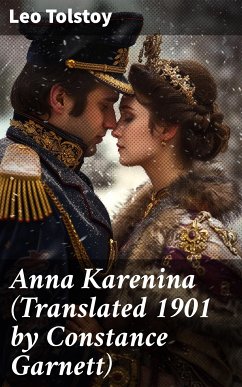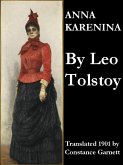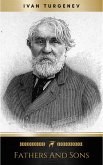Leo Tolstoy'Äôs "Anna Karenina," in Constance Garnett'Äôs masterful 1901 translation, transcends the boundaries of its 19th-century Russian setting to explore timeless themes of love, fidelity, and societal expectation. The novel'Äôs intricate narrative weaves together the lives of several characters, most notably the tragic heroine Anna and her passionate affair with Count Vronsky, against a backdrop of Russian aristocracy. Tolstoy'Äôs realism and attention to psychological depth illuminate the complexities of human relationships, while his symbolic use of contrasting rural and urban settings amplifies the moral dilemmas faced by his characters. Tolstoy, a prominent figure in world literature, was deeply influenced by his experiences in the Russian gentry and his philosophical explorations of ethics and morality. His own struggles with faith, love, and societal norms undoubtedly informed the creation of Anna'Äôs poignant journey, revealing the profound anguish at the intersection of desire and duty. These personal reflections, combined with his acute observations of Russian life, position Tolstoy as a critical voice of his era, deeply invested in the moral fabric of society. "Anna Karenina" is an essential read for anyone seeking a profound exploration of human emotion and societal constraints. Tolstoy'Äôs rich character development and deep philosophical inquiries welcome readers into a world where love and despair collide, making this novel not only a literary masterpiece but also a significant commentary on the human condition.
Dieser Download kann aus rechtlichen Gründen nur mit Rechnungsadresse in A, B, BG, CY, CZ, D, DK, EW, E, FIN, F, GR, H, IRL, I, LT, L, LR, M, NL, PL, P, R, S, SLO, SK ausgeliefert werden.









